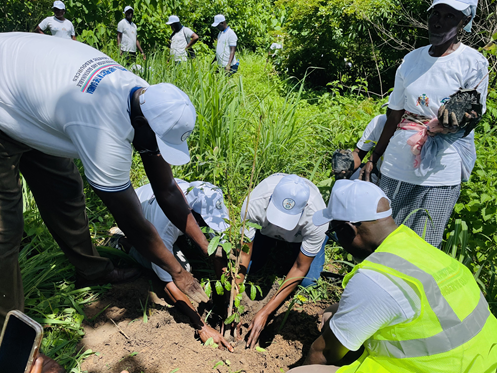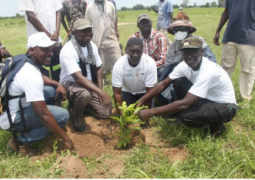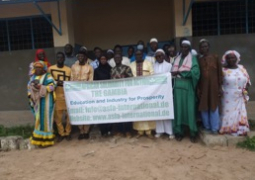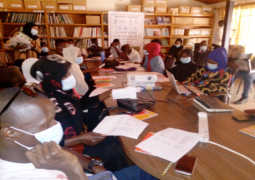
The initiative, which attracted government officials, conservationists, and local communities is part of initiative under the Nagoya Protocol’s Access and Benefit Sharing (ABS) project.
Funded by GEF, the initiative aims to restore endangered indigenous tree species, protect biodiversity, and secure long-term environmental benefits for future generations. The species include Tallo, Jallo, Malina, and Bamboo.
The initiative, which is part of the rough the United Nations Environment Programme (UNEP), the ABS project also emphasises long-term sustainability. Beyond planting, officials stressed the importance of nurturing trees to maturity, ensuring communities derive ecological and economic benefits in the years to come.
At the event, Momodou Gassama underscored the importance of the initiative, noting that many of the tree species planted have either disappeared from the area or are at risk of extinction.
“It is not only about tree planting, it is about tree growing. Once we plant these trees, we must protect them until they reach a beneficial level. Posterity will judge us by the legacy we leave behind,” he stressed.
The ABS project, piloted in the Kabafita Forest ecosystem and Kiang West National Park, seeks to restore lost species and safeguard genetic resources, which could hold future medicinal and economic value. Gassama highlighted that such resources, if exploited elsewhere without proper agreements, could deny Gambians the rightful benefits.
Coordinator of the Nagoya Project ABS, Abubacarr Kujabi, revealed that over 300 trees have already been planted in Kiang West National Park since August, targeting more than ten communities.
By the end of this year, he said, the project expects to plant around 800 species nationwide. He also reaffirmed strict measures against illegal dumping and deforestation, warning that offenders will face prosecution.
Ousman Bojang, Governor of West coast Region, called for stronger collaboration among stakeholders to ensure enforcement of environmental regulations.
“The management of our forest is everybody’s responsibility, especially those entrusted with managing it who must ensure proper protection. Communities should feel ownership of this project so that together, we can safeguard our natural heritage,” he said.
For his part, Dawuda Badjie, Executive Director of National Environmental Agency (NEA), echoed the importance of protecting indigenous trees that are on the brink of extinction.
He recalled how many local medicinal plants, that were once widely available in the area in the past, are now vanishing. “These species are not just trees, they are part of our culture, our health, and our future. If we fail to act now, the next generation may never know them,” he cautioned.
Other speakers included the Alkalo of Brikama Wellingara, Batch Samba Bah and alkalo, Farato who both expressed similar sentiments.
They thanked government, NEA, and partners for the tree planting initiative, stressing that such projects are vital in restoring the country’s forests and ensuring a better future for generations to come.





